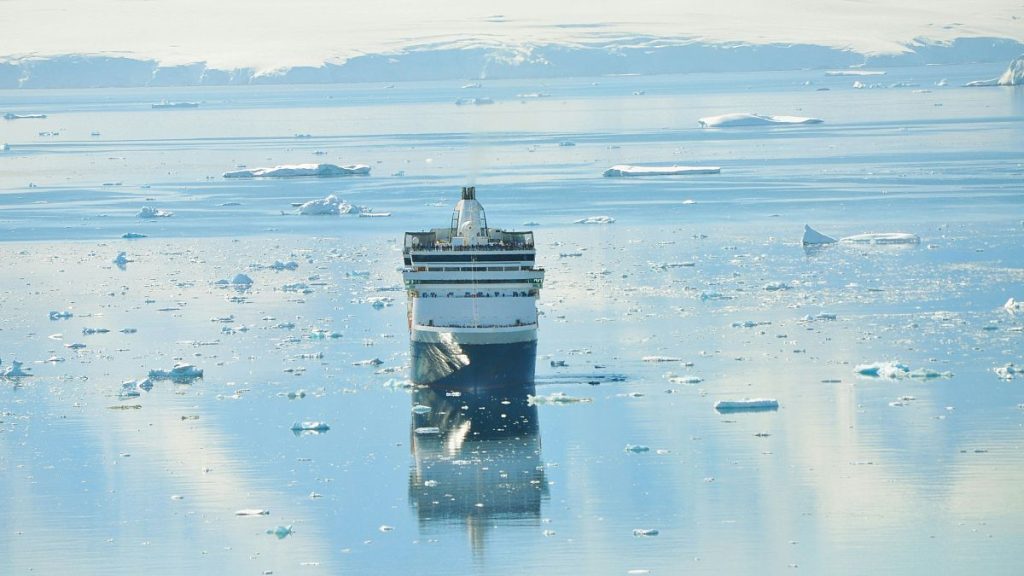The SH Diana, an Antarctic cruise ship operated by Swan Hellenic, is facing significant turmoil after experiencing an engine failure that has abruptly curtailed its voyage. The ship, which embarked from Cape Town on November 13 for a 21-day adventure in the Antarctic, has encountered an unexpected malfunction in one of its electric motors. This malfunction has not only resulted in the cancellation of planned port calls to iconic locations such as Elephant Island and Deception Island but has also forced the ship to navigate towards Ushuaia, Argentina, at a sluggish pace of 11 km/h, where it will undergo necessary repairs. Passengers, some of whom paid up to €10,000 for the journey, are understandably frustrated at the disruption to what was meant to be a once-in-a-lifetime experience.
The situation has escalated to a hunger strike led by a small group of Russian passengers as a form of protest against perceived inadequate compensation from Swan Hellenic. Passengers are expressing their discontent over the company’s proposed refunds, which consist of a 50% return of their fare or a 65% credit for future cruises within two years. Many feel that these offers fail to address the disappointment of not being able to visit Antarctica, a highlight of the cruise. The situation has further intensified, with criticism aimed at the cruise company for what passengers deem to be poor handling in addressing their grievances. Comments from passengers reveal deep dissatisfaction, highlighting the emotional weight of the lost trip that was accessible only through this specific cruise.
In the midst of this chaos, Swan Hellenic’s chief executive, Andrea Zito, has publicly defended the compensation strategy, stating that the offers exceed legal obligations, which stand at approximately 30% of the fare. He acknowledged the significance of the lost days on the Antarctic Peninsula for most passengers but also noted that not everyone has been satisfied with the proposed resolutions. Zito’s remarks suggest that while the company is making efforts to address passenger concerns, there is an ongoing struggle to meet the expectations of all guests on board, leading to heightened tensions amongst the travelers.
To placate the disappointed passengers, Swan Hellenic has also promised daily excursions while the ship is docked in Ushuaia until the passengers can return to their home destinations on December 3. While this initiative aims to add value to their experience, it remains to be seen whether it will ease the growing discontent and resolve the conflict stemming from the loss of the Antarctic leg of the journey. Passengers are reported to be pressuring senior staff on the ship for further concessions, illustrating that the situation is still far from resolved and that the hunger strike represents a desperate plea for acknowledgment and improved recompense.
The SH Diana is marketed as an eco-friendly expedition vessel, boasting capabilities that include zero-emission battery technology and self-sufficiency for extended periods. This underscores the brand’s commitment to sustainable tourism. However, the current crisis raises questions about the operational reliability of such advanced technology. Although passengers were drawn to the ship for its unique offerings and environmentally friendly credentials, the recent engine failure puts a spotlight on the complexities and risks associated with high-stakes expedition cruising in remote areas.
Ultimately, the unfolding drama aboard the SH Diana not only highlights the challenges faced by cruise companies in managing guest expectations and maintaining operational integrity but also underscores the emotional investment passengers make when embarking on such journeys. The hunger strike reflects a profound sense of loss and disappointment felt by those on board, further complicating the company’s efforts to restore confidence among its clientele. As Swan Hellenic navigates this challenging situation, it will need to carefully consider the balance between legal obligations and customer satisfaction to prevent long-lasting damage to its reputation in the competitive cruise market.


